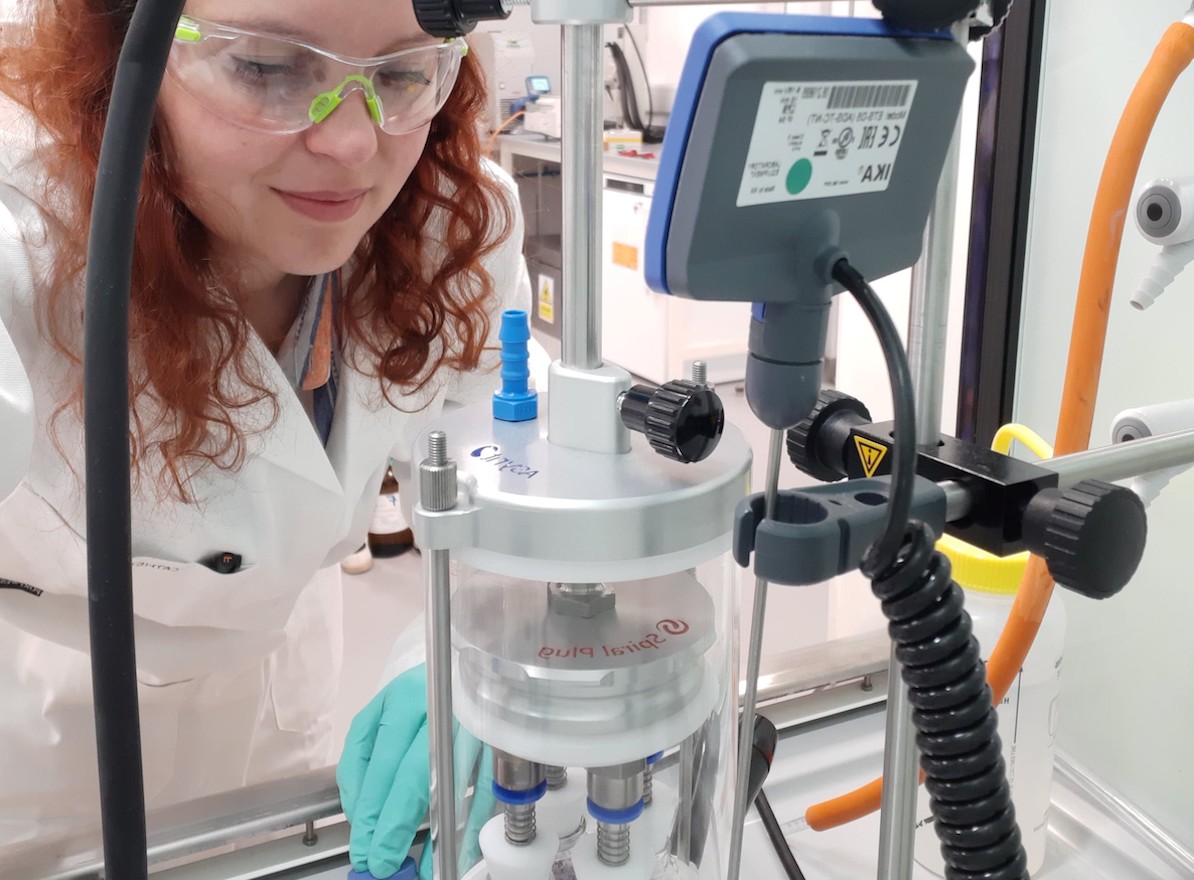Channels
Special Offers & Promotions
Colloidal Nanoparticles Advance Frontiers of Synthetic Chemistry
Researchers from the School of Chemistry at the University of St Andrews (UK) are using a DrySyn Spiral Evaporator from Asynt to help synthesize novel reactive colloidal nanoparticles that present an exciting tool to create a new generation of 'smart' nanomaterials.
The unique properties of nanomaterials mean that potential applications extend from use in smart drug delivery systems through to new catalysts and helping to deliver greater efficiency in solar cells. However, the field is still restricted by limited synthetic capabilities.
Research at the University of St Andrews laboratory lies at the interface of supramolecular chemistry and nanomaterials. The aim of Dr Euan Kay’s research group, is to translate the concepts of supramolecular chemistry into the nanoworld, so as to achieve molecular-level control over structure and function. The Kay team are developing new synthetic methodologies, based on novel colloidal nanoparticles, which can be handled ‘in solution’ in much the same way as larger molecules. . This enables researchers to apply the principles of synthetic supramolecular chemistry and the analytical tools of molecular science to control and characterize nanoscale structure with molecular precision.
Dr Euan Kay commented "The DrySyn Spiral Evaporator was mainly purchased for the removal of high boiling point solvents, such as water, dimethylsulfoxide (DMSO) and dimethylformamide (DMF), to produce dry samples of organic compounds and nanoparticles, and for removing solvent traces when transferring small samples into vials for storage. Before acquiring the DrySyn Spiral Evaporator from Asynt, we would dry down samples in rotary evaporators which were prone to solvent bumping (creating an unwanted sample clean-up). Alternatively, we would evaporate solvents from vials using a stream of compressed air. This option is only really feasible for lower boiling point solvents. Some of the nanomaterials we work with are only readily dispersed in water or DMF. Having the possibility to dry samples directly into vials, without resorting to freeze drying, is a big benefit to us both in terms of productivity and sample stability during storage. In many situations, the DrySyn Spiral Evaporator has shown itself to be more practical and faster than other methods. In addition, several of our bespoke molecular precursors are dense oils. Without the spiral evaporator, these were particularly difficult to dry down into vials (traces of solvents were left, bumps occurring while drying caused the loss of material). Because of the spiral evaporation effect of this instrument, oils are not static while drying, avoiding bumps and achieving far more efficient removal of solvent traces".
Dr Kay concluded "We would definitively recommend the DrySyn Spiral Evaporator to others for all the reasons explained above. The instrument is easy to set up and takes up very little space, which is an important bonus in a crowded lab environment".
About Asynt
Asynt is a leading supplier of affordable products, consumables and services for chemists in industry and academia. With a staff of trained chemists - Asynt can draw upon this in-depth applications knowledge to provide a high level of customer support for its DrySyn Heating Blocks, Controlled Lab Reactors, Synthesis Tools, Evaporators, Circulators, Temperature Control Systems, Vacuum Pumps and Lab Safety Equipment.
Media Partners



